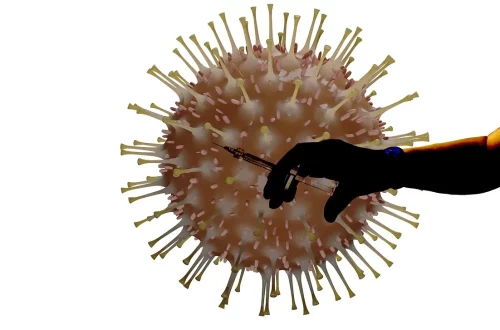
Understanding Horse Bute: Uses, Benefits, and Precautions
Understanding Horse Bute: Uses, Benefits, and Precautions
The world of equine care is filled with various treatments and remedies, each serving a unique purpose in maintaining the health and well-being of horses. Among these, horse bute, or phenylbutazone, stands out as a common non-steroidal anti-inflammatory drug (NSAID) used to alleviate pain and reduce inflammation in horses. Its origin dates back to the mid-20th century, and it has since become a staple in veterinary medicine. Despite its widespread use, the topic of horse bute often raises questions regarding its safety, efficacy, and proper usage.
Horse owners and caretakers must fully understand the implications of administering this medication. Whether it’s for managing chronic conditions, post-surgical pain, or acute injuries, knowledge of horse bute is crucial for responsible usage. However, with its benefits come potential risks and side effects, making it essential to approach this medication with caution. In an age where equine health is prioritized, understanding the nuances of horse bute can help owners make informed decisions regarding their horses’ treatment plans.
As we delve deeper into this topic, we will explore the various aspects of horse bute, including its applications, benefits, and necessary precautions to consider.
What Is Horse Bute and How Does It Work?
Horse bute, or phenylbutazone, is a medication classified as a non-steroidal anti-inflammatory drug (NSAID). It is primarily used in horses to manage pain and inflammation associated with conditions such as arthritis, laminitis, and other musculoskeletal disorders. Its effectiveness lies in its ability to inhibit certain enzymes in the body that contribute to inflammation and pain sensation.
When a horse experiences injury or undergoes strenuous activity, inflammatory responses are triggered in the body, leading to pain and swelling. By blocking the production of prostaglandins, which are chemicals involved in these inflammatory processes, horse bute helps to alleviate discomfort, allowing the horse to return to normal activity levels more quickly.
Horse bute is typically administered orally or intravenously, depending on the severity of the condition and the veterinarian’s recommendations. The dosage is carefully calculated based on the horse’s weight and specific health needs. It is crucial for horse owners to adhere to the prescribed dosage to avoid potential overdosing, which can lead to serious health complications.
While horse bute is effective for many conditions, it is not without its drawbacks. Prolonged use can lead to gastrointestinal issues, kidney problems, and, in rare cases, bone marrow suppression. Therefore, it is essential to use this medication judiciously and under veterinary guidance. Understanding the pharmacology of horse bute and its implications on equine health is vital for any horse owner seeking to provide the best care for their animal.
Benefits of Using Horse Bute
The use of horse bute provides numerous benefits, making it a go-to medication for many equine practitioners. One of the most significant advantages is its ability to provide rapid relief from pain and inflammation. For horses suffering from acute conditions, such as injuries or post-operative recovery, horse bute can be a game-changer, allowing for a quicker return to normal activities.
Another benefit of horse bute is its versatility. It can be used to treat a wide range of conditions, from chronic issues like arthritis to more acute problems such as laminitis or strains. This broad applicability makes it a valuable tool in any horse owner’s or veterinarian’s arsenal.
Furthermore, compared to other pain relief options, horse bute is relatively affordable and accessible. Many veterinary practices stock it as a standard treatment, and its availability makes it easier for horse owners to obtain the care their animals need without extensive delays. This accessibility can be particularly crucial in emergency situations where time is of the essence.
Additionally, horse bute’s effectiveness can be enhanced when used as part of a comprehensive treatment plan, including rest, physical therapy, and nutritional support. By combining medications with other therapeutic approaches, horse owners can maximize their horses’ recovery potential and overall well-being.
However, it is essential to remember that while horse bute offers significant benefits, it should always be used responsibly. Monitoring the horse for any adverse reactions and consulting with a veterinarian for long-term use is critical in ensuring the health and safety of the animal.
Precautions and Potential Side Effects
While horse bute is widely used and can provide substantial benefits, it is not without risks. One of the primary concerns with this medication is its potential for side effects, particularly when used improperly or for extended periods. The most common side effects include gastrointestinal issues, such as ulcers, colic, and diarrhea. These complications arise due to the drug’s mechanism of action, which can disrupt the natural protective lining of the stomach and intestines.
Kidney function is another area of concern when administering horse bute. Prolonged use can lead to renal damage, particularly in horses with pre-existing kidney issues. Therefore, regular monitoring of kidney function through blood tests is advisable for horses on long-term bute therapy.
Allergic reactions, though rare, can also occur. Symptoms may include swelling, hives, or difficulty breathing, necessitating immediate veterinary attention. It is crucial for horse owners to be aware of their horses’ medical history and any previous reactions to medications.
Pregnant or lactating mares should avoid horse bute, as its effects on reproductive health are not well understood and could pose risks to both the mare and the foal. Additionally, horse bute is not approved for use in food-producing animals due to the potential for drug residues in meat or milk products. Therefore, horse owners must be diligent about following veterinary guidelines and ensuring that this medication is used only as directed.
In summary, while horse bute can be highly effective for pain management and reducing inflammation, it is essential to weigh the benefits against the potential risks. Regular veterinary check-ups, adherence to prescribed dosages, and close monitoring of the horse’s health can help mitigate these risks and ensure the safe use of this medication.
**Disclaimer:** This article is for informational purposes only and does not constitute medical advice. Always consult a veterinarian for any health issues concerning your horse.




